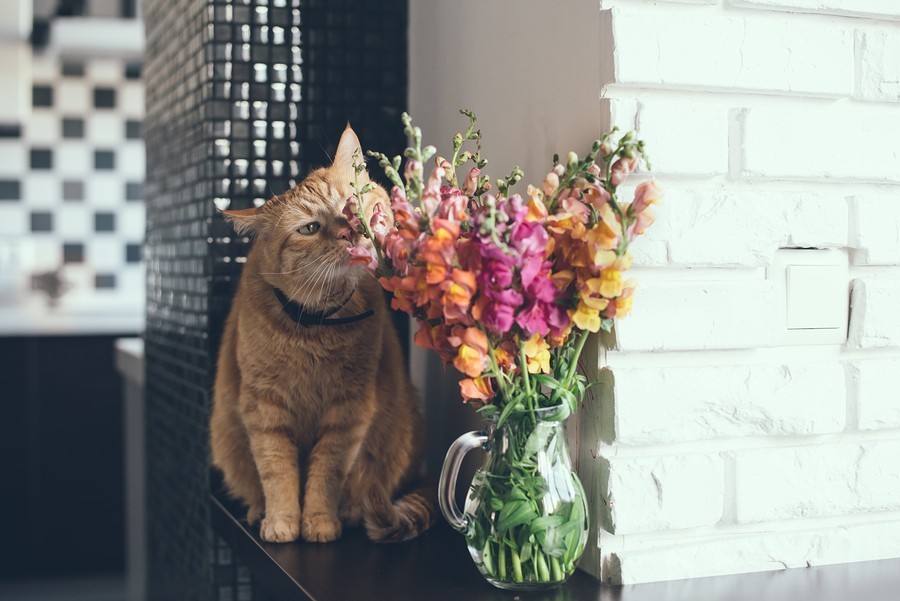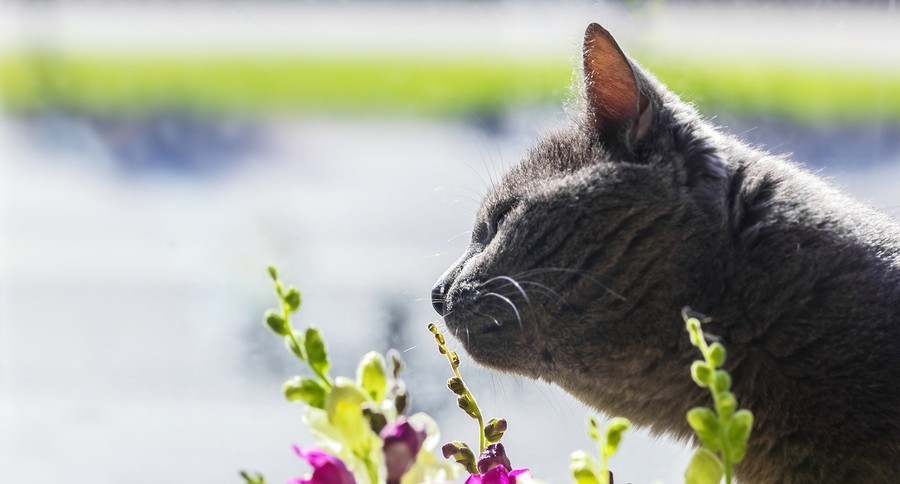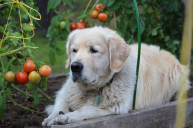Poison sometimes comes in the form of a pretty flower. Make sure your home is clear of the following.
As a pet owner you are very aware of what she eats. You try to keep her on a healthy diet by avoiding human food and only provide savory treats approved by the vet. But pets have a mind of their own and sometimes go for something different, like that beautiful new plant you got yesterday.
It's a new smell that deserves deeper inspection... and if its aroma is delicious, surely it will taste extra yummy!

Suddenly your pet starts having weird reactions like:
- vomiting
- diarrhea
- lethargy
- loss of appetite
- heavy drooling
- difficulty breathing
- inflammation of the skin and mouth
That pretty plant has poisoned your pet. Some poisonous plants will damage the skin, causing burn-like symptoms; others are ingested and damage organs in the digestive and gastrointestinal systems.
Not all of them are fatal, but they need immediate assistance. Before you take your pet to the vet you can help the process by removing any residual plant from her skin, washing your pet with warm water and non-irritating soap (baby shampoos have less chemicals), and bringing a piece of the plant.
If you are not sure which one it was, collect a vomit sample and also bring it with you. It is easier for the doctor to determine the treatment if he knows the source.

Amongst the most common poisonous plants are:
- Lillies in all its varieties
- Azaleas
- Tulips and Narcissus bulbs
- Poinsettias
- Sago Palm
- Eucaliptus
- Oleander
- Marijuana
- Chrysanthemun
- Ivy
Flowers and weeds are not the only ones. The most innocent ones are also on the list:
- Apple: the stem, leaves and seeds contain cyanide, which is very toxic
- Tomato plants: contain solanine that can cause gastrointestinal symptoms as well as behavioral changes
Your home can be cleaned of all the dangerous plants, but you must also be careful when taking your pet out for a walk, especially if she likes to nibble on anything green that crosses her path. If your usual route has too many scary temptations, do a little research and find a safer one.
The ASPCA and Fix both have an extensive list of poisonous plants. There is also a 24-hour emergency poison hotline that can guide you through the process. Call 1-888-426-4435 if your pet has been poisoned.

Source: Fix.com Blog





